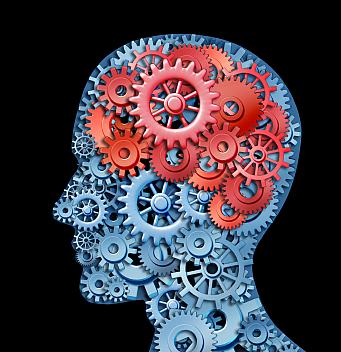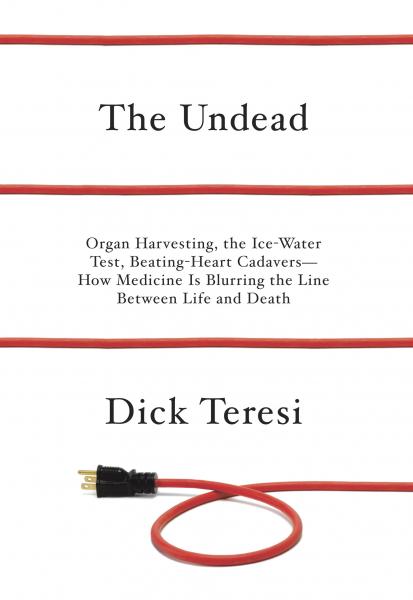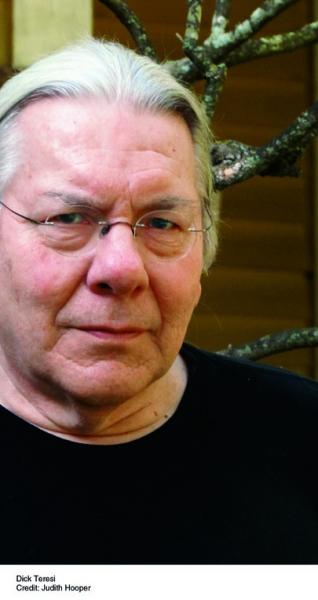Q&A with Dick Teresi: "The Undead," Organ Harvesting and the Science of Brain Death

 You'd hope organ donors would be dead beyond any doubt when their organs are harvested, but in his new book, Dick Teresi argues that they may not be dead enough.
You'd hope organ donors would be dead beyond any doubt when their organs are harvested, but in his new book, Dick Teresi argues that they may not be dead enough.
Teresi, the former editor of the science magazine Omni, takes readers on a disturbing journey through morgues, operating rooms and hospices in The Undead: Organ Harvesting, the Ice-Water Test, Beating Heart Cadavers-How Medicine Is Blurring the Line Between Life and Death, trying to answer a simple question: when does life end and death begin? You can read an excerpt from the book here.
In trying to answer the question with science - and finding the science lacking - Teresi was slammed by the organ donation industry and transplant patients for what they see as his vilification of the harvesting process. Here, he addresses his critics and talks about how he came to write "The Undead." Our telephone conversation has been edited for length and clarity.
Q: How did you become a science writer?
A: Like many things, it was an accident. In 1973, I was a freelance writer, not doing well. I was offered a managing editor job at Science Digest. I didn't know much about science but I'd always been interested in it. I was in seventh grade when Sputnik came up. I got kind of burned out on science in junior high and high school; in college I took the bare amount. But once I had the opportunity to work for Science Digest, I got hooked.
Q: What made you want to write this book?
A: It was Carl Sagan. My wife and I were watching him on the Charlie Rose show, and he said he'd had his second or third bone marrow transplant and he'd been saved by science. My wife, who was in cancer support groups at the time said, "Oh, he's done. When people get their terminal diagnosis, this is how they talk." Sagan defined what death was on Charlie Rose – "the long dreamless sleep." I thought, "Wow, he's really in denial." When you're sleeping you're still alive but what is sleep, what is death if we look at it scientifically? I started with a simple question.
I started (working on the book) in 1998. It was very hard to work on. I would get burned out and come back to it. Then I started thinking about the philosophical implications of death and how much my life was based unconsciously on the idea that I wasn't going to die.
Q: How might you have conceived this book differently if you were 30 years younger?
A: That's a really good question – I really don't know. I'm much happier at 66 than 36. At that age I might not have been interested in this question.
Q: How did your research and writing process unfold?
A: I don't do any of the narrative thread stuff. I don't do that anymore. I covered particle physics for many years. What lies at the heart of it is randomness – you can't figure out what particles are doing and you can't figure what's going happen when.
I don't want to particularly put together a nice pretty story for reader because I don't' think it's really true. I let the reader put his own meaning on it.
One criticism I'm getting is, "why are you against people donating organs or transplantation?" But you don't really find that in the book. They're imposing that meaning. When you're doing science, there isn't necessarily a narrative there. It's really hard for people to relate to.
When starting out with a science topic, you do reading on the topic, you identify the major players then you interview the major players. It's pretty simple.
Q: How did you get up to speed on the science?
A: I didn't do much medicine before this and I didn't like it. Medicine is really complicated. I wanted to know, what do we know scientifically about death? I realized after a month this was a stupid idea – science relies on empirical evidence and there's no empirical evidence for death.
Imposed on death is this notion that it's irreversible; if you come back from the dead, you weren't dead in the first place. I realized this wasn't the case.
One of the things I found interesting about researching the book is that I didn't go into it thinking about organ transplants at all. I just wanted to look at death. What I first read was the original Harvard paper in 1968 that outlined clinical criteria for brain death.
Original papers convinced me that it was a fraud – the doctors in the transplant business haven't read them. They're not so easy to get. I'll be arguing to them and they'll refer to papers and they haven't read them.
I found all sorts of interesting things. You can't give anesthetic to a beating-heart cadaver because it would be admitting you're not sure the person is dead. They say they don't want the anesthetic in the organs. The real reason is that it betrays doubt that the beating heart cadaver is really dead. You see blood pressure going up and pulse peaking (during harvesting). If you give that beating heart cadaver anesthetic, that will stop – as in living patients. That doesn't show that was pain; (doctors) say it's reflexes.
The original standard for brain death in 1968 is that there cannot be any reflexes. Now they're getting both movement and reflexes in the beating heart cadavers.
 Q: You started working on the book in 1998. Why did it take so long to publish it?
Q: You started working on the book in 1998. Why did it take so long to publish it?
A: In all fairness, it wasn't that focused. At that time, I thought "are you dead or alive" was just a basic question that would lead me to more interesting stuff, and as it turned out, the question itself was the stopping point.
Originally, it was called "Dead or Alive" but then Tom Clancy came out with a novel called "Dead or Alive." It was suggested that Tom Clancy was better known than me. So The Undead was a second choice.
Simon and Schuster had an option on my next book (Teresi published Lost Discoveries, a history of science, in 2002). They dithered with me for months – finally I gave up on them and went with Pantheon Every book proposal is a lie and every magazine pitch is a lie, because if you really knew it it, would be turned in. you have to go where the data takes you.
Q: You've received some pretty strong criticism of your book – what do you read into that response?
I don't read the reviews – I don't go to the Amazon page. People tell me about the reviews, but I haven't read them. If the criticisms are valid, there's not much I can do about it. If they're not valid, it'll piss you off, then if they're favorable, then you think something good is going to happen and it doesn't.
I did see responses to my Wall St. Journal article (What You Lose When You Sign That Donor Card). The first day, it was 3-1 favorable. Then there were two to three huge mountains of comments – a lot claimed to be in the (transplant) business.
In the past, the transplant biz has coped with criticism by ignoring it – it's been a very effective technique. This is first time they've engaged the enemy (i.e. me) and said some very revealing things. Surgeons have said, we do so use anesthetic .On the other side, you have people talking about bad experiences with organ wranglers in the hospital – people saying, "can we have the body" – and they're relentless.
Q: Did the science outpace your reporting?
A: No way – I checked. People tell me it's gotten worse. A brain death examiner told me they don't want to spend the extra $1000 on a blood flow test (which could establish brain death).
I have a brain death form – it's one page long. It's not a complicated thing. They're only required to test the brain stem – it's a small part of your brain.
Q: Would you tackle another topic in medicine in the future?
A: I don't think so. But I don't know what I'm going to do next. The responses from the Wall St. Journal and National Public Radio - some were from people who'd been mistreated by organ banks. The main (criticism) I've gotten is that my goal is to kill 113,000 people on organ transplant waiting lists.
That's such an obvious and cheap trick, it seems to me. My book isn't only about organ transplants. I don't get much past the harvest of the organs. To talk about death and especially brain death, you have to talk about organ transplants – that's what's driving the debate, not science.
Q: What do you think about that? Is that so bad?
A: That's above my pay grade. Do you want to spend that much money on an organ transplant to extend an old person's life? Or could society better spend that money on vaccinations for kids, or on improving infant mortality? There are kids who can't go to sleep at night because they can't afford antibiotics for an ear infection, but we'll spend $660,000 on a transplant. It really has to do with where you're putting your resources and transplants are really expensive.
Q: What advice do you have for journalists who are interested in writing a book?
A: I'm not sure I have any advice. I was offered jobs on newspapers and I didn't take them. I wanted to do my own topics. If you do write a book, do it on a topic that your editor would never let you do.
You obviously have to be more long-sighted. One of the things I saw in writing this book, I saw how many journalists covered aspects of what I was writing about but never followed it up. That happens to a daily reporter, you get destroyed. I have the luxury of sitting back and thinking about things and letting it mull over. I can put things together because I don't have the workload that daily reporters have. I hate to say this, but you have to quit your job, give up security.
Q: You write long-form. But do you have any advice for storytelling for journalists who increasingly are being asked to write short?
A: I like to write short. There's nothing to be learned from a book writer about writing short, but when I'm writing shorter articles about my book, I give them more of an angle and I summarize more. In short writing you have to make a point – what's the point of these three inches?
Related Posts:
